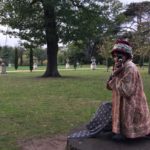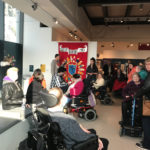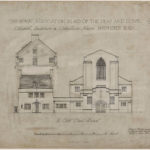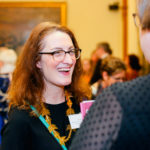The politics of disability: from 6th century China to the Industrial Revolution
Anna Fairley attends a talk by Roddy Slorach, who argues that whether you are ‘disabled’ depends on the society surrounding you.
 Survey results: deaf and disabled people in the cultural sector,
Survey results: deaf and disabled people in the cultural sector,
 Curating for Change: deaf and disabled people leading in museums,
Curating for Change: deaf and disabled people leading in museums,
 ‘I was always rebelling against the system’,
‘I was always rebelling against the system’,
 BSL introduction to the stories of Deaf people told by the History of Place project,
BSL introduction to the stories of Deaf people told by the History of Place project,
 Take our surveys, help us as we develop a work placement programme,
Take our surveys, help us as we develop a work placement programme,
 Washing up,
Washing up,
 Cooking,
Cooking,
 Typing,
Typing,
 Kitchen at Grove Road – two,
Kitchen at Grove Road – two,
 Kitchen,
Kitchen,
Anna Fairley attends a talk by Roddy Slorach, who argues that whether you are ‘disabled’ depends on the society surrounding you.
Some of the rules imposed on those using almshouses were common sense, others seem draconian to us now, but places were limited, and people who were accepted probably felt very lucky.
Ann continues tracing almshouses beyond the medieval period, and discovers what happened to pilgrims who fell mortally ill.
Our film will be screened in Bristol in early December 2016.
Some hospitals survived for hundreds of years, providing sanctuary – and gathering idiosyncratic rules and one or two myths.
At a time of huge national upheaval during and after the Civil War, was there anyone around who still cared about England’s almshouses? Yes.
Join us for the launch of a new interactive trail of deaf and disabled people’s histories around Liverpool on Monday 21st November.
Work with artist and heritage professional James Aldridge and use your senses and imagination to bring the Guild’s history to life.
One challenge of the History of Place project has been thinking about how to engage all five senses in storytelling. Creative workshops at the Royal School for the Blind, Liverpool explored how to transport listeners’ imaginations to tunnels and 18th century cargo ships using sound and smell.
During the 18th century common diseases like small-pox, measles and whooping cough were all causes of blindness, as well as ‘Egyptian ophthalmia’ which hospitalised whole regiments of English and French troops.